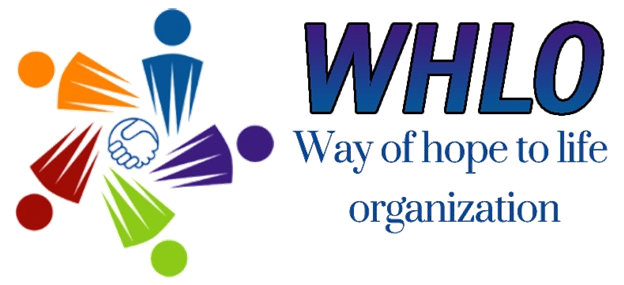Disasters and crises can take a devastating toll on people’s food security and livelihoods. They can increase people’s socio-economic vulnerability and seriously impact their ability to recover, which in turn affects their ability to cope with future shocks and stresses.
The International Federation of the Red Cross and Red Crescent Societies (IFRC) recognizes the importance of food security and livelihoods (FSL) interventions in our emergency and recovery responses, as well as in building long-term community and household resilience.
Food security is when all people have physical and economic access at all times to buy, produce, obtain or consume sufficient, safe and nutritious food to meet their dietary needs and food preferences for a healthy and active life.
Livelihoods are the capabilities, assets and activities required for people to earn money and secure a means of living.
Our food security and livelihood programmes very greatly depending on the context and are often delivered in combination with other sectors. They focus on three main areas:
- Ensuring access to food and the protection of livelihoods during and immediately after an emergency, primarily through cash assistance and in-kind transfers
- Restoring and reinforcing community and household assets, capabilities, and strategies to improve food security and secure livelihoods during the recovery phase following a disaster or crisis
- Strengthening food security, expanding climate-smart and green livelihoods, and building household resilience by supporting improved rural and urban production, self- and paid employment, and entrepreneurship
Agriculture & Inclusive Markets
More than half of the people living without enough food are smallholder farming families. Income from agriculture, livestock and fishing can be irregular due to price fluctuations, climate change and seasonality. WHLO aims to address these challenges by helping to enhance productivity through improved practices and technologies; reducing the susceptibility of farming to shocks through climate-smart and environmentally sustainable approaches; improving business practices to make farming more profitable; facilitating links between producers, intermediaries, markets and last mile service providers; and, directly supporting firms and social enterprises to develop models and products appropriate for smallholder producers. While direct support such as providing seeds or training to farmers is an important short-term measure, we transition from these activities to more systemic interventions through approaches that strengthen markets and institutions as soon as possible.
Household Economic Strengthening
Since traditional livelihoods such as agriculture may not provide the means to address the root causes of poverty and food insecurity for many households, particularly as populations grow, WHLO also promotes alternative livelihood strategies by analyzing household economic assets , prospects and working with members of these households to diversify livelihoods through non-farm employment and entrepreneurship options. Our employment and entrepreneurship initiatives help the income earning prospects of at-risk women, men and youth by assessing high-potential employment and entrepreneurship opportunities and providing vocational/technical education, life skills training, functional literacy and numeracy education, entrepreneurial training, business start-up support and job linkage support. We also help program participants to apply their new skills through apprenticeships or enterprise groups, where they can gain confidence and credibility with employers and clients.
Gender Equity and Social Inclusion
Food security, nutrition and resilience are greatly impacted by the power relations between men, women and the different levels of access, control and decision making they have over resources. To address this, Way of Life to Hope Organization (WHLO) focuses on gender transformative programming that empowers women and girls socially and economically, engages community influencers to tackle harmful gender norms and promotes joint decision-making between men and women using culturally appropriate and sensitive approaches to increase equity and inclusion. MEHHRO also works to ensure that community governance structures are equitable and include representation from women, youth and marginalized groups.
Food Assistance
Our programs are designed to address the root causes of food insecurity and to bring about sustainable poverty reduction and nutrition outcomes. However, chronically vulnerable communities often require interim support to maintain or improve their food security and nutrition status while they work towards longer-term solutions. When such support is required, WHLO provides targeted food assistance to vulnerable households and household members. This food assistance can take the form of in-kind commodity, cash or vouchers distributions. Food assistance may also take the form of cash or food for asset interventions that are tied to public works or local infrastructure projects.
Resilience and Disaster Management
The communities in Way of Hope to Life Organization (WHLO) works are exposed to a range of shocks and stresses – from natural disasters such as drought and floods, to the long term effects of climate change, to conflict the market disruptions and a range of more individualized family-level shocks. To reduce the susceptibility of communities to these shocks and stresses, WHLO works with community groups and local governments to strengthen early warning systems, develop disaster management plans and resources and take early action to reduce the impacts of shocks.
Climate reliance work
WHLO works in Environmental program rehabilitation at different sites in the country. One of the important sites where this project is being implemented is Khost university, this has great impact to bring down the concertation of CO2 and increase O2 in the areas, refresh people’s lives and gives hope for the people.

Food emergency support
People especially IDPs, Refuges and returnees were highly in need of the most valuable food stuffs. The fore, the organization supported these people in collaboration with the other funding organizations like Zami foundation. As a result of this, more than 4000 people were addressed through the food support of Zami foundation.


